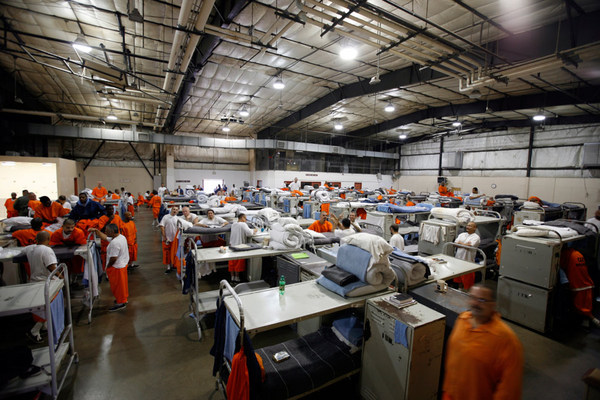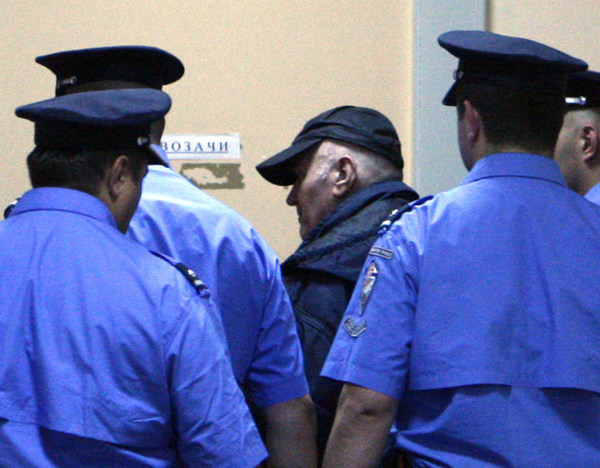The Latest from Boing Boing |  |
- Irising business card
- What happened to game demos?
- Hacker and internet troll Weev befriends DSK: "We're all like one big Breakfast Club in there"
- SPECIAL FEATURE: Moment of Impact: the amazing photography of Alan Sailer
- Rainforest activists murdered in Brazil
- ATM repairman who worked for Diebold accused of swapping $200K in fake bills for cash
- California lawsuit accuses Apple, Google, Adobe, and others of fixing worker pay
- Disney withdraws trademark application for Navy "Seal Team 6"
- US Senate and House vote to extend Patriot Act provisions; Obama expected to sign
- IS KITTEN HUGS TIME
- Ratko Mladic, "God of Genocide," arrested
- Is Glencore up to something shady? Lawyers send bizarre warnings to reporters
- Raw Opium: documentary trailer
- Saudi woman wants to give women the right to drive in her country
- "Vaught's Practical Character Reader," weird phrenology book from 1902
- Read This: Powering the Dream
- Video of Steve Jobs introducing the Apple Store in 2001
- Google unveils pay-by-mobile-phone system
- Video comic about dark matter
- Tapes show Italian priest lured teenage boys for sex, paid them with cocaine
- Music gear I/O dock for iPad
- Update on Hindu "back-top" newspaper publisher in Pakistan: how to help
- The Bouba/Kiki Effect
- Planking in Taiwan
- Head of the St STD to be auctioned off
- New York Stock Exchange claims you can't show pictures of it without permission
- Did Urban Outfitters rip off an indie designer, yet again?
- Computer errors cause release of 450 California inmates at "high risk for violence"
- Reuters journalist detained and beaten in Syria describes torture witnessed
- Anonymous pre-paid credit-cards and money-laundering
| Posted: 27 May 2011 02:32 AM PDT The latest animated business-card from Cardnetics is this card with a built-in irising mechanism. The card is available as a finished product, a kit, or a Thingiverse object to download and cut yourself. It's also available in other sizes, including greeting-cards. Iris Business Card by clide (Thingiverse) (via Reddit) |
| Posted: 27 May 2011 04:21 AM PDT Alec Meer at Rock Paper Shotgun laments the slow demise of decent game demos. Demos still exist and probably always will, but they've become the exception rather than the rule. Even in the last couple of years, the decline has been rapid - it's a relative rarity to post about one on RPS now. Publishers seem to have settled on marketing and heavy, heavy promotion (often including bewildering ARGs) as the alternative - a surer way to drum up interest in and expectation for the game, and one that does so without the dread risk of a gamer discovering that, actually, they don't like this all that much. For some really big games, the norm even seems to be not releasing a demo until weeks or months after the full release, presumably to help drum up those few stragglers who somehow resisted the pervasive trailers and advertisements.I still have some Amiga cover disks somewhere around here... The Slow, Strange Death Of The Demo [Rock Paper Shotgun] |
| Hacker and internet troll Weev befriends DSK: "We're all like one big Breakfast Club in there" Posted: 26 May 2011 08:21 PM PDT Accused attempted rapist Dominique Strauss-Kahn has met the welcome wagon, and it is Weev. The hacker and internet troll who lives in the downtown New York City building where DSK is placed under house arrest told the New York Post he's met the ex-IMF chief, and that they are pals of a sort.
Auernheimer, aka Weev, is one of the guys who discovered a flaw at AT&T's website that compromised the privacy of thousands of iPad users.
|
| SPECIAL FEATURE: Moment of Impact: the amazing photography of Alan Sailer Posted: 27 May 2011 04:15 AM PDT Alan Sailer says he was an obscure photographer, working in his garage, shooting stuff with a pellet gun and capturing the results with a home-made microsecond flash. All it took was one picture to become a sudden hit on the social networks: "My boss came by one day and told me my site was getting a huge number of views. Emails from magazines, newspapers and even Good Morning America started clogging my FlickrMail box. It was very stressful." |
| Rainforest activists murdered in Brazil Posted: 26 May 2011 06:36 PM PDT  The bodies of Amazon rainforest activist Joao Claudio Ribeiro da Silva and his wife Maria do Espirito Santo are carried to burial by friends and relatives, in the municipal cemetery of Maraba, in Brazil, on May 26, 2011. The identity of those responsible for the shooting in northern Brazil on Tuesday has not yet been determined, but da Silva predicted his own death six months ago, and was the recipient of frequent death threats by illegal loggers and cattle ranchers. "I will protect the forest at all costs. That is why I could get a bullet in my head at any moment -- because I denounce the loggers and charcoal producers," he said. Watch his speech at TEDxAmazonia, below, in which he says he believes killing trees in the rainforest is murder (click the "cc" button in the player for English subtitles).
The murders of da Silva and his wife took place as Brazil's Congress debates a divisive bill that threatens to further expand deforestation. Da Silva and Espirito Santo were active in the same organization of forest workers that was founded by legendary conservationist Chico Mendes. Al Jazeera has a video report here, and a first-person account from the funeral for the slain activist here. More news coverage: NPR, New York Times, Guardian, Reuters, Telegraph. Photos above and below: Reuters. |
| ATM repairman who worked for Diebold accused of swapping $200K in fake bills for cash Posted: 26 May 2011 06:02 PM PDT  64-year-old Samuel Kioskl of San Francisco, who services ATMs for Bank of America as an employee of Diebold, has been charged with swapping $200,000 in fake bills for real cash at machines. Last July, Kioskli went to six BofA branches in San Francisco and one in Daly City, and made off with about $200,000 by swapping out the cash in the machine trays with counterfeit or photocopied $20 bills, according to San Mateo County District Attorney Steve Wagstaffe. |
| California lawsuit accuses Apple, Google, Adobe, and others of fixing worker pay Posted: 26 May 2011 05:12 PM PDT A lawsuit filed in California accuses Adobe, Apple, Google, Intel, Intuit, Lucasfilm, and Pixar of violating antitrust laws by conspiring to fix employee pay, and agreeing on "no solicitation" deals with one another. Executives from the aforementioned companies "entered into an interconnected web of express agreements to eliminate competition among them for skilled labor," the suit charges. (CNET) |
| Disney withdraws trademark application for Navy "Seal Team 6" Posted: 26 May 2011 04:41 PM PDT After the Navy basically told them to back the hell off, The Walt Disney Co. withdrew its application to trademark the phrase "SEAL Team 6." A previous Boing Boing post on the story is here. |
| US Senate and House vote to extend Patriot Act provisions; Obama expected to sign Posted: 26 May 2011 05:17 PM PDT Update, 751pm ET: The House has approved a 4-year USA PATRIOT act extension, 250-153. The US Senate voted today to extend three key provisions of the Patriot Act which were scheduled to expire tonight at midnight. The measure is now before the House for debate, and is scheduled to complete its work tonight. Civil liberties advocates charge that the provisions, in particular portions related to electronic surveillance and wiretapping, are a violation of the Constitution. If Congress approves the extension, it goes before President Obama, who is currently in Europe. Reuters reports that White House spokesman Nick Shapiro says the President will use "the autopen to sign" the bill quickly into law. The autopen is a machine that replicates his signature.
One of the three provisions, Section 206 of the Patriot Act, provides for roving wiretap surveillance of targets who try to thwart Foreign Intelligence Surveillance Act (FISA) surveillance. Without such roving wiretap authority, investigators would be forced to seek a new court order each time they need to change the location, phone or computer that needs to be monitored.More at CNN.com.
|
| Posted: 26 May 2011 03:56 PM PDT VIDEO LINK. WARNING: CONTAINS GRAPHIC CUTENESS. MAY CAUSE DIABEETUS. (Thanks, Tara McGinley!) |
| Ratko Mladic, "God of Genocide," arrested Posted: 26 May 2011 03:23 PM PDT  (PHOTOS / REUTERS. At left, in 1993: Bosnian Serb army Commander General Ratko Mladic (L) salutes.) The self-proclaimed "God of genocide" in Srebrenica, the Serbian ethnic general Ratko Mladic was arrested today in a small village eighty kilometers from Belgrade. Mladic sheltered there with a relative, and lived under a false name. For years on end he hid like a house-mouse, and was arrested with a similar meekness. Old, docile, with one hand crippled, the formerly ferocious warlord lived peaceably and invisibly in a house that had been searched repeatedly by the Serbian police. This long-wanted war criminal and exceedingly successful fugitive from justice had a 10 million euro award on his head. And yet, recent polls say that, despite the suffering and ignominy he brought them, 51 percent of Serbian citizens would not have given him up to the international war tribunal in the Hague. No, not for any money. Serbian stubbornness has gone beyond the period of Mladic's bloodstained hero-worship. Nowadays the Serbs have grown indifferent to Mladic while actively resenting the European Union, whose economic disorders have made Serbian life miserable. And yet it appears that somebody did betray Mladic for the reward: someone among his circle of close friends. Some years ago, an entire group of people, who were all accused of actively sheltering Mladic, were released from a Serbian court through lack of evidence.
A couple of years ago, Radovan Karadzic, the mastermind of the ethnic cleansing in Bosnia, was arrested in downtown Belgrade. Dr. Karadzic had been hiding under a long beard as a New Age quack guru. Witnessing this travesty on television, my aged father said: Ratko Mkadic is a soldier! He will never do a thing like that! He will rather commit suicide than humiliate himself in that manner or get arrested by police! Mladic will never go to The Hague!
After the recent capture of Osama Bin Laden, Ratko Mladic was the fugitive number one in the world. The US president Obama said he was happy Serbia perfomed its duty. The world press is giving all the credits to the pro-European government of president Boris Tadic, and his determined policy to pull Serbia away from the criminal past.
The mothers of Srebrenica victims declared themselves contented with this turn of events. They expected it many years ago; but better later than never. These women have learned to be deeply suspicious of the tribunal in The Hague; the international lawyers there declared their prize mementos and personal evidence to be bulky and useless; unfit for a modern court proceeding. So much for their cherished mementos of their dead, their hoarded proofs that the vanished dead had really lived, that they were murdered.
|
| Is Glencore up to something shady? Lawyers send bizarre warnings to reporters Posted: 26 May 2011 03:51 PM PDT Commodities firm Glencore just had a weak IPO in London, going underwater by the end of day one. But have you heard of them? Probably not! The news is of little interest outside of the finance pages. Journalists, however, have started receiving bizarre legal warnings telling them how to cover the "extremely private individuals" who run the company—letters from a law firm notorious for getting "super-injunctions" for clients that need the British press gagged. So guess what! Suddenly, Glencore looks quite interesting to the press. Remember the last giant commodities trader to need one of those gagging orders? [IBTimes] |
| Raw Opium: documentary trailer Posted: 26 May 2011 01:38 PM PDT Raw Opium is a journey around the world and through time, where conflicting forces do battle over the narcotic sap of the opium poppy. From an opium master in southeast Asia to a UN drug enforcement officer on the border of Afghanistan hunting down the smugglers of central Asia; from a former Indian government Drug Czar and opium farmer to a crusading Vancouver doctor and Portuguese street worker who daily confront the realities of drug addiction.Raw Opium: A feature documentary about a commodity that has tremendous power - both to ease pain and to destroy lives |
| Saudi woman wants to give women the right to drive in her country Posted: 26 May 2011 01:28 PM PDT A Saudi woman named Manal al-Sherif is leading a movement to encourage women to learn to drive cars in her country, where only men are allowed to drive. The campaigners are calling for a mass drive on 17 June. The group say women joining the campaign should not challenge authorities if they are stopped and questioned, and should abide by the country's strict dress code. "We want to live as complete citizens, without the humiliation that we are subjected to every day because we are tied to a driver. We are not here to break the law ... we are here to claim one of our simplest rights."Saudi Women's Facebook page: "Teach me how to drive so I can protect myself" (Via Arbroath) |
| "Vaught's Practical Character Reader," weird phrenology book from 1902 Posted: 26 May 2011 01:24 PM PDT  BB reader Pea Hix points us to a digital copy of "Vaught's Practical Character Reader," a sort of phrenology book from 1902. "The illustrations are copious and fantastic, and could be a fun source of profile pics!" (archive.org via BB Submitterator) |
| Posted: 26 May 2011 01:07 PM PDT  Powering the Dream: The History and Promise of Green Technology Let me explain. I'd heard little bits and pieces about this book long before it was bound together inside a cover. I'm working on my own book about the future of energy right now, and I'd chatted with Alexis Madrigal, Atlantic.com Tech editor and Powering the Dream's author, about our shared thoughts on energy technologies, energy culture, and the way our respective books were shaping up. From those conversations, I'd been looking forward to an in-depth history of things. I expected to learn about the electric motors that drove some early automobiles ... about the tinkering farmers and eccentric engineers who turned the windmill from a kludgy product of desperation into a well-designed machine ... about the first attempts to capture the power of the sun for useful work, and why would-be the solar revolution of the 1970s never happened. And Powering the Dream does cover all that stuff. And more. There's plenty here to keep Makers enthralled. But, ultimately, the history of things is just trivia. And it's only really part of what this book is about. The stuff that actually matters—why you really ought to read Powering the Dream—is Madrigal's take on the history of ideas. When you study the history of alternative energy technology in this country, you don't just learn about science and engineering. You learn about people and culture. You learn about ideologies, and dreams, and what Americans think it means to be an American. When it comes to energy, what we have created, and how we have used the tools that already exist, has depended more on our ideas and beliefs about what energy ought to be than on the physical limitations of what can and cannot be done. This is the story that Powering the Dream is really all about. Madrigal finds this thread running through American dreams about "natural" energy. It's especially prevalent in the way some Americans have latched onto solar power as the one ideal energy source, not because of its technological merits, but because it offers an opportunity to disconnect from the rest of their fellow citizens—to play energy cowboy in an imagined (if not even creepily longed-for) post-apocalypse, where they don't need anybody and definitely don't need the messy shared systems of modern society. And Madrigal spots the same story happening behind the scenes of the rise of nuclear energy. In this case, researchers raised during America's developmental heyday assumed that the the future would only bring more of what they'd already seen—astronomical year-over-year increases in the amount of energy Americans consume. Their belief that bigger was not just better, but nigh-on inevitable, informed a loop of self-reinforcing ideas that led many scientists to push nuclear power as our only hope for the future long before the technology itself was mature or economical. Even our use of fossil fuels has been influenced by belief. In the mid-19th century, America's first oil boom in Pennsylvania convinced the nation that Providence had handed us an endless supply of almost-magical substance, a super-transportable, super-dense source of energy that could grant riches like Midas. When the the Pennsylvania oil wells ran dry, everyone was chastened. Momentarily. Then oil turned up in Texas and California, and the dream of limitless black gold took over once again. Even today, after America's oil demand has come to outstrip what our natural resources are capable of supplying and the weight of evidence points to a coming day when the world's oil supplies will peak and then fall, there are still plenty of people clinging to the idea that we will (must!) have all the oil we want, for ever and ever. Energy isn't just what it is. Energy is what we have decided we want it to be. Sometimes, that fact leads us to make good decisions. Sometimes, it leads us into horrible mistakes. More often, we get a little of both at the same time. But we can't plan out the future of energy without taking a good, hard look how our beliefs and cultural ideas have created its past. We have to come to terms with the fact that our decisions about energy aren't guided by pure economics or pure science, and never have been. If we ignore that, then we're doomed to keep making sloppy choices, or become frozen in a standoff of ideologies disguised as fact—and neither is something we can afford to do right now. Human society—American society—is reflected in the infrastructures it builds, Madrigal writes. Powering the Dream is a book that makes that fact abundantly clear. Powering the Dream: The History and Promise of Green Technology Disclaimer: I received a free review copy of this book from the author. That said, I receive a lot of free review copies of books. I only tell you about the ones I think you really need to read. Image: Off-shore Wind Farm Turbine, a Creative Commons href="http://creativecommons.org/licenses/by/2.0/deed.en">Attribution (2.0) image from pjh's photostream |
| Video of Steve Jobs introducing the Apple Store in 2001 Posted: 26 May 2011 01:21 PM PDT [Video Link] Interesting to see how the store and Steve have changed over the last ten years! (Via Doobybrain) |
| Google unveils pay-by-mobile-phone system Posted: 26 May 2011 01:00 PM PDT Google and partners Mastercard, Citigroup, First Data and Sprint today unveiled "Google Wallet" and "Google Offers", which will allow US shoppers to pay "by waving their mobile phones at the checkout counter." The service will be made available this summer in New York and San Francisco. (Reuters) |
| Posted: 26 May 2011 12:34 PM PDT Scott Underwood says: "Perhaps taking a cue from the excellent RSA Animate videos, Dark Matters from PHD Comics is a six-minute video of a couple guys (apparently recorded at the playground or something) talking about dark matter and what physicists know and don't know." |
| Tapes show Italian priest lured teenage boys for sex, paid them with cocaine Posted: 26 May 2011 01:18 PM PDT  Investigators examining tapped cellphone conversations between a Moroccan drug dealer and 51-year-old Father Riccardo Seppia (shown at left, in the red robe) found evidence of arranged sexual encounters with young boys, some of whom were paid for sex with cocaine. "I do not want 16-year-old boys but younger," Seppia is accused of having said on the tapes. "Fourteen-year-olds are O.K. Look for needy boys who have family issues." Seppia is a priest in a the archdiocese of one of the top advisers working with Pope Benedict XVI "on reforms to respond to prior scandals of pedophile priests." He is said to have boasted in the recorded cellphone conversations that local shopping malls were the best place to pick up boys for sex. Investigators are also examining three confiscated computers: the priest allegedly looked for partners via chat as well. (via New Civil Rights Movement, via Christopher Hayes) |
| Posted: 26 May 2011 12:28 PM PDT  In Gweek 002, Rob, Joel, and I talked about digital musical instruments and some of the music making apps available on the iPad. I complained bitterly about the crappy output of the headphone jack, and Joel rightly upbraided me for even trying to use it. I just found out about this $200 iPad dock from Alesis that allows you to connect all kinds of audio gear to it. The iO Dock provides microphone and instrument users with two combination XLR and 1/4-inch inputs, each with its own gain control and switchable phantom power for condenser microphones. Guitarists and bassists will appreciate the iO Dock's guitar-direct switch, enabling them to play, perform and record right into amplifier- and effects-modeling apps. Bands can connect outputs from their mixer and easily record their performances and rehearsals or use the iO Dock as a metronome or loop-playback device. Producers can use the iO Dock's MIDI jacks to sequence external keyboards, samplers, drum machines and synthesizers, or perform using the iO Dock as the sound module and their favorite MIDI-compliant keyboard, drum pad or other controller. An assignable 1/4-inch footswitch input enables remote control of any app-defined function such as stop/start or record. Users can also connect the iO Dock to their Mac or PC using the USB port to send MIDI back and forth for creative, new applications of the iPad and computer used in tandem.Alesis iO Dock for iPad |
| Update on Hindu "back-top" newspaper publisher in Pakistan: how to help Posted: 26 May 2011 12:25 PM PDT  Earlier this week here on Boing Boing, I posted a video by former BB guestblogger Bassam Tariq and Omar Mullick—an incredible little vignette about a father of 6 in a poor community in Pakistan who publishes a Hindu newspaper for the minority Hindu community there, with a message of intercultural peace and tolerance. What amazed me, and BB readers, about the story most? The guy is a shoe-shiner who taught himself how to use computers and do desktop publishing by himself, and he is using a massive, older desktop computer and literally carrying this huge PC on his back to the city, where the newspaper is printed. Some readers wanted to help out, either with cash donations or by sending a laptop or flash drives, something to make the process easier for him. I asked Bassam, and he writes, "Sabeen Mahmud heads up Peace Niche and she is the one that people can send donations to. People can send her an email at sabeen@peaceniche.org." |
| Posted: 26 May 2011 12:12 PM PDT  See the two shapes above? Which is a bouba and which is a kiki?" In 2001, USCD psychologist Vilayanur Ramachandran presented these shapes to American undergraduates and to Tamil speakers in India. He asked, "Which of these shapes is bouba and which is kiki?" Around 98% of the respondents assigned the name kiki to the spiky shape and bouba to the curvy one.The Bouba/Kiki Effect from Futility Closet by Greg Ross (Image: Wikimedia Commons) |
| Posted: 26 May 2011 11:42 AM PDT  Karren poses for a photograph while demonstrating planking during an interview with Reuters outside Taiwan's National Theatre in Taipei May 25, 2011. Lying face flat on the ground may not be the world's most glamourous photo pose, but two Taiwanese "planking" women have made a name for themselves on the Internet -- and hope to use the craze to spread positive social messages. Calling themselves the Pujie Girls, which translates to "falling on the street" in Mandarin, the pair are Taiwan's most well-known plankers, with almost 100,000 fans following them on Facebook. — REUTERS/Nicky Loh Karren poses for a photograph while demonstrating planking during an interview with Reuters outside Taiwan's National Theatre in Taipei May 25, 2011. Lying face flat on the ground may not be the world's most glamourous photo pose, but two Taiwanese "planking" women have made a name for themselves on the Internet -- and hope to use the craze to spread positive social messages. Calling themselves the Pujie Girls, which translates to "falling on the street" in Mandarin, the pair are Taiwan's most well-known plankers, with almost 100,000 fans following them on Facebook. — REUTERS/Nicky Loh |
| Head of the St STD to be auctioned off Posted: 25 May 2011 11:38 PM PDT This Sunday, an auction house in Ireland will sell off what is said to be the head of St Vitalis, patron saint of genital diseases. St Vitalis was canonized for "numerous miracles performed on those with bladder and genital disorders." Severed head of patron saint of genital disease on sale (via Geekologie) |
| New York Stock Exchange claims you can't show pictures of it without permission Posted: 26 May 2011 11:44 AM PDT
The New York Stock Exchange threatened Talking Points Memo after the site used a wire photo of the exchange to illustrate an article. Josh Marhsall writes:
The original article is here. |
| Did Urban Outfitters rip off an indie designer, yet again? Posted: 26 May 2011 11:40 AM PDT  The similarity between the work of Chicago-based designer Stevie Koerner, aka imakeshinythings, and a recently-launched line of jewelry from Urban Outfitters, appears too close to be an accident. This is not the first time the fashion chain has been accused of ripping off indie designers. Above: Urban Outfitters' line at left, Stevie Koerner's at right. More on Stevie's blog. (via Submitterator, thanks Jack Crosby) |
| Computer errors cause release of 450 California inmates at "high risk for violence" Posted: 26 May 2011 10:56 AM PDT  California prison officials have released about 450 inmates with "a high risk for violence" because of a computer system error, according to a report by the state's inspector general. Some 1,000 or more additional inmates with "a high risk of committing drug crimes, property crimes and other offenses" were also released because of the same error. They're all out on unsupervised parole, and no effort has been made to return any of them to lockup, or place them on supervised parole. The news comes just two days after the U.S. Supreme Court ruled that the state's prisons are dangerously overcrowded, and upheld an earlier order that officials must find a way to reduce the 143,335-inmate population by roughly 33,000. From the Los Angeles Times: Using the 15% error rate they found in their sample, investigators estimated that more than 450 violent inmates had been released during the first seven months of the program, the time period they reviewed. Prison officials have disputed the findings, saying they had corrected some of the computer problems discovered by the inspector general. The error rate is now 8%, the inspector general report says.Computer errors let violent California prisoners go free (LA Times) (Photo / REUTERS: Prisoners at the Richard J. Donovan Correctional Facility in San Diego, California are seen housed in a gymnasium due to overcrowding in this September 14, 2009 file photo. Like many states, California's spending on prisons has risen dramatically in recent years due to both tougher crime laws and more stringent requirements for inmate healthcare. What sets California apart is that it also spends a great deal on generous wage and benefit packages for its prison guards.) |
| Reuters journalist detained and beaten in Syria describes torture witnessed Posted: 26 May 2011 10:39 AM PDT Suleiman al-Khalidi, a Jordanian citizen and a journalist with Reuters, was arrested by security police in Syria while covering the popular uprising against President Bashar al-Assad. In this item, he recounts his treatment by the Syrian intelligence services, and torture he witnessed during four days of confinement. |
| Anonymous pre-paid credit-cards and money-laundering Posted: 25 May 2011 11:31 PM PDT Th $107 billion prepaid credit-card business has attracted money-launderers, according to US customs officers; what's more, the anonymous cards are exempt from border regulations that require you to disclose when you bring $10,000 in or out of the country: Prepaid cards attract money launderers (via Consumerist) |
| You are subscribed to email updates from Boing Boing To stop receiving these emails, you may unsubscribe now. | Email delivery powered by Google |
| Google Inc., 20 West Kinzie, Chicago IL USA 60610 | |






 The head sat for many years in the family hall in County Louth, but was recently uncovered in an outhouse.
The head sat for many years in the family hall in County Louth, but was recently uncovered in an outhouse. 
 Visually, the cards are barely distinguishable from credit or debit cards and the most versatile let users reload them remotely without having to reveal their identity, using cash, moneygrams, PayPal and other online payment services.
Visually, the cards are barely distinguishable from credit or debit cards and the most versatile let users reload them remotely without having to reveal their identity, using cash, moneygrams, PayPal and other online payment services.
No comments:
Post a Comment